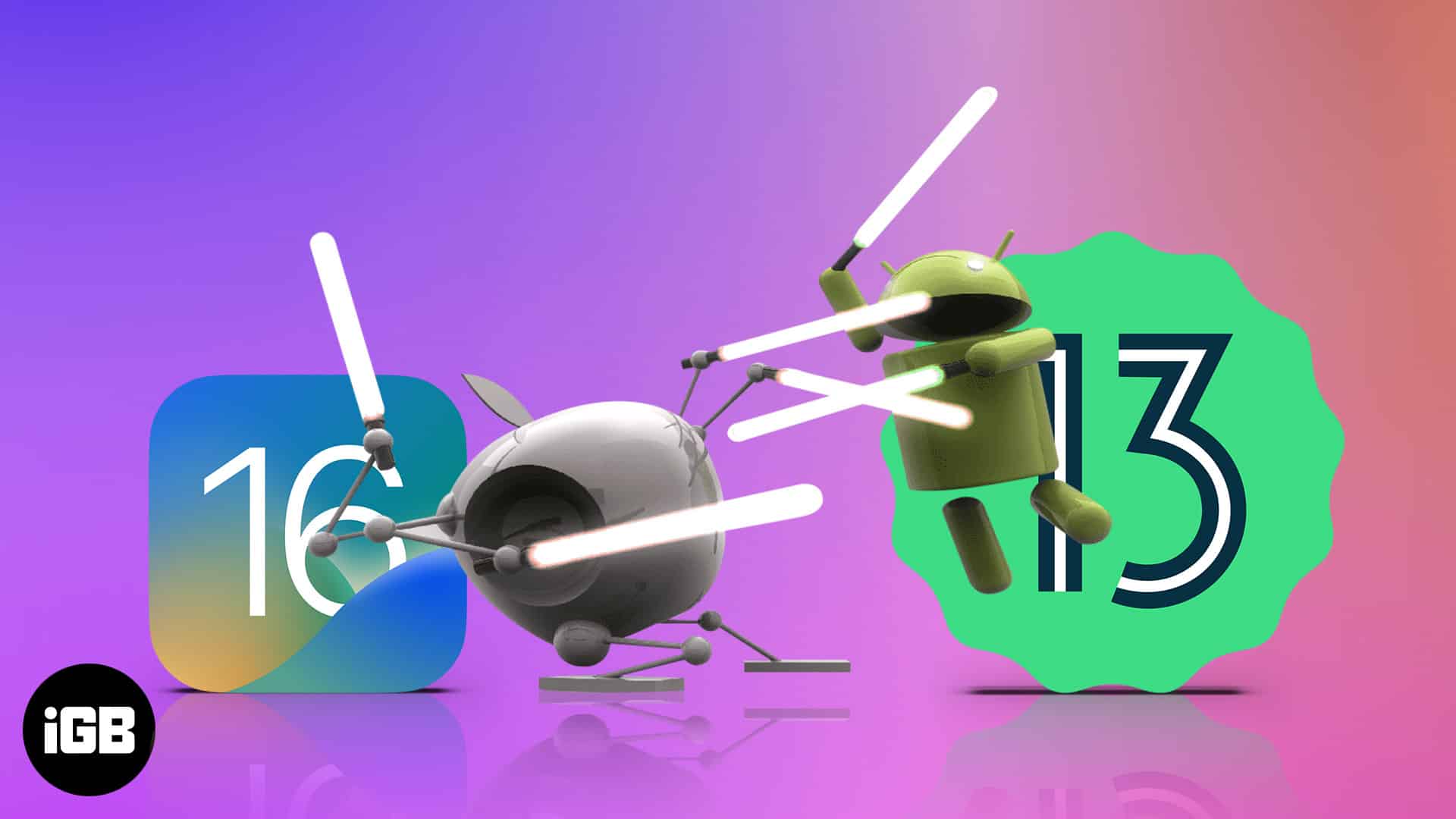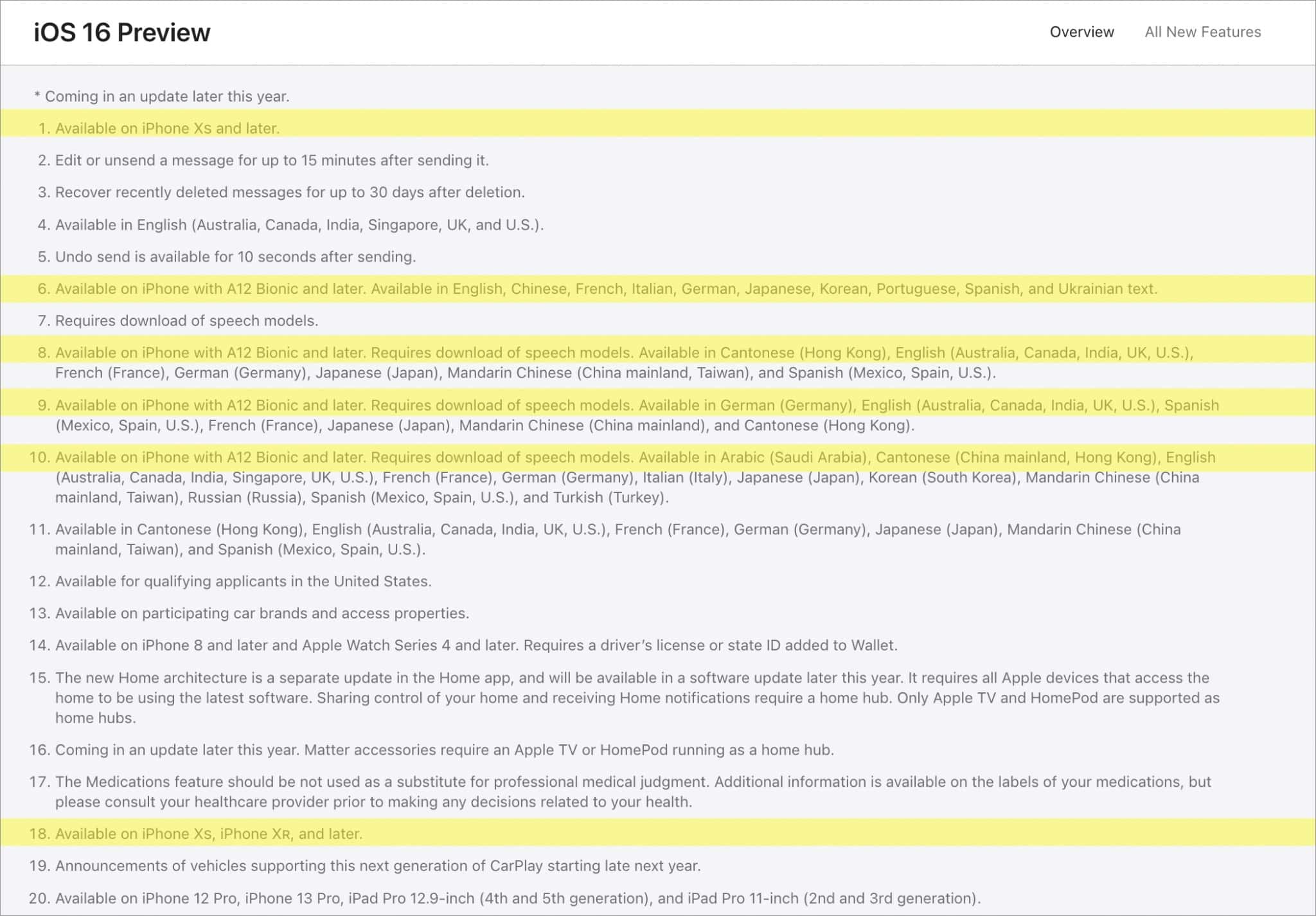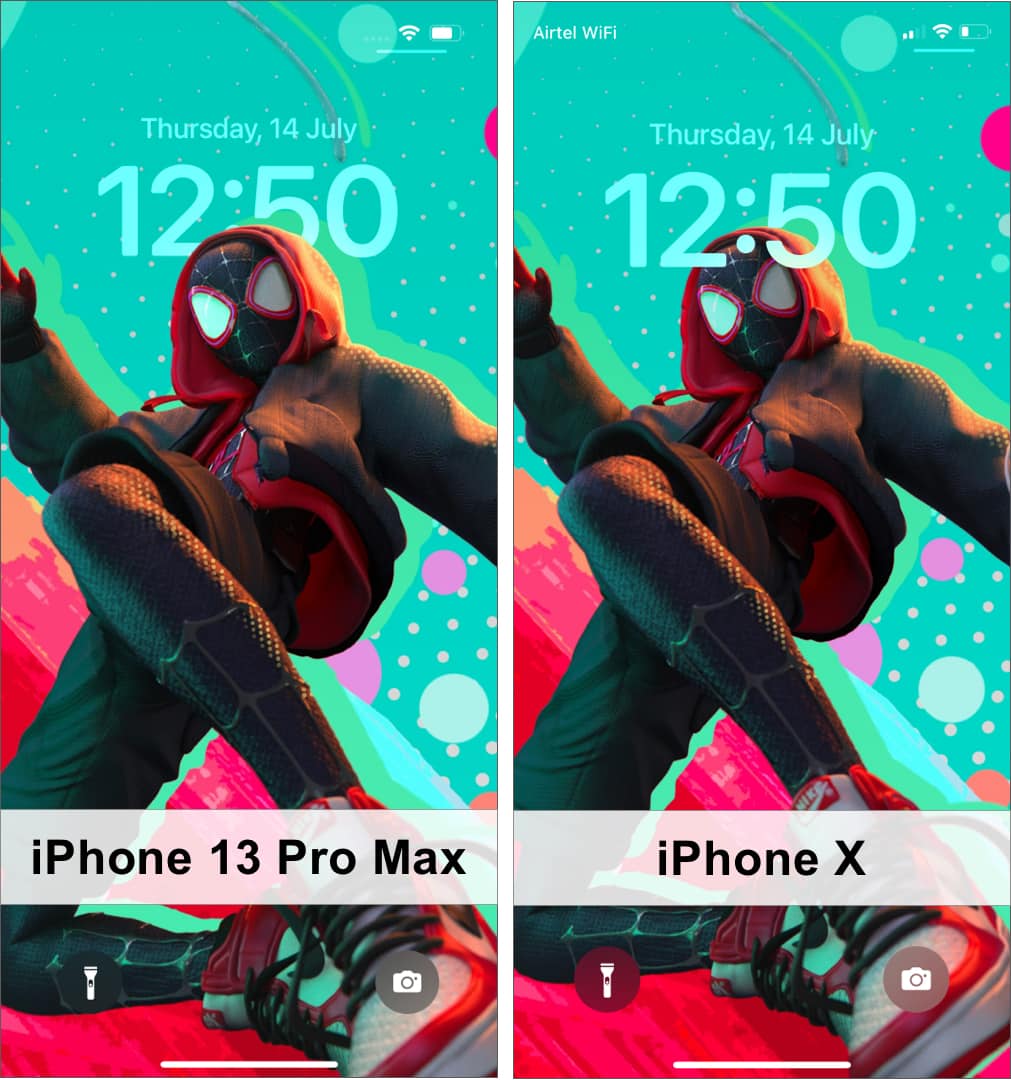For years, iOS has held the bragging right for a better, longer, and smoother OS update cycle, while Android’s trump card was customization. But as Android is improving, Apple is slacking, which got me wondering if Android might finally beat Apple in the OS update cycle.

Both Android and iOS have been playing catch-up games for ages now. Sometimes iOS takes a page from Android’s book, and sometimes it’s vice versa. But this isn’t about who’s better or has better features or optimization.
Rather I am judging the two on their individual update cycles and how they handle them. So instead of directly comparing iOS vs. Android, I am comparing past iOS vs. present iOS and past Android vs. present Android and then seeing who’s acing the game.
Why might Apple be losing its upper hand with iOS 16?
One of the most prominent reasons to choose iOS over Android was Apple’s promise of a minimum 4-year OS and security updates. It lent users assurance of longevity and the perks of having the latest features and security.
However, the latest iOS update, iOS 16, has widened the discrepancies in Apple’s update cycle. Users of old iPhones can no more claim the same. Why? Check out the video for a little brief.
The chop is and isn’t harsh
Apple has chopped off three iPhone series (iPhone 6s, iPhone SE (1st gen.), and iPhone 7) from the iOS 16 update. Yes, the devices are 7-6 years old, and Apple has already gone beyond its 4-year update promise, but the tech giant was selling the iPhone 7 and 7 Plus up till 2019.
So, it’s a bit of a shocker for those unfortunate souls who bought the iPhone 7 series three years ago. And though the number of disappointed iPhone 7 users might be low, every smartphone user matters, right?
Although honestly, I am not too mad at Apple for dropping these devices, they were quite old. And iOS 16 would have taken a toll on their performance. So, while it’s a tough pill to swallow, it is also an understandable decision.
Apple’s feature distribution is sometimes unfair
However, this unexplained, biased feature distribution has ticked me off. It’s one thing not to have an update, but having an update that’s deprived of almost all headlined features is more hurtful.
And the users of the iPhone 8, iPhone 8 Plus, and iPhone X series will live through that. Some features are locked under the guise of “A12 Bionic and later,” and some are simply available for iPhone XS and later.

A list of iOS 16 features that are unavailable on the iPhone 8 series and iPhone X:
- Multilayered wallpaper effect – While the new lock screen is available on all devices, the depth effect for intelligent clock placement is locked.

- Lift subject from background – Nope, you can’t get this magical feature either.
- Live Text – Missing since iOS 15 .
- No new Dictation feature – You can’t dictate and type simultaneously or have dication emoji support if you have the 2018 iPhones.
- Can’t add medication via iPhone camera
- Almost all new Siri features are missing – Alongside the missing offline support for Siri, you also can’t ask Hey Siri,
- What can I do here?
- Hang up the call
We aren’t demanding something unruly, are we Apple?
⚠️ Soapbox alert ⚠️ I have a few questions for Apple,
- If Google Lens can work amazingly on almost every device, why is Live Text acting so hoity-toity?
- When several AI background removal apps work flawlessly on 2018 iPhones, why can’t your feature work with them?
- Is the A11 Bionic chip so underperforming that it can’t handle users clicking pictures of their medicine or using dictation and typing simultaneously?
It’s not like we are demanding the 2018 iPhones to work with 5G and then 6G upon its release. We will understand if it’s some hardware issue; let’s say it needs to have LiDAR or some XYZ sensor.
These blocks or limitations seem like cheap tactics to push users to update their old phones. Although, aren’t you the company that claims their devices can be used for years? Plus, what happened to your 100% carbon neutrality goal now?
It’s not just iPhone
I could chalk these under genuine software/hardware limitations for a short minute. However, Apple is doing it so repeatedly that it looks like a strategy more than a constraint. Take the whole iPadOS 16 Stage Manager debate, for instance.
Apple has locked the feature for M1 iPads. When fingers were pointed, the tech giant conveniently stated the requirement for super-fast virtual memory swap support. However, that’s not entirely true. Check out this Tweet:
Beware, Apple, Android is catching up fast
Android device developers are pulling up their socks every successive year. In February 2022, Samsung pledged to offer Android OS upgrades on select Galaxy devices for four years. Plus, an additional year of the security update.
In the previous year, OnePlus announced that the flagship device would get three major Android upgrades and four years of security updates. Yes, there are chinks in the armor.
You don’t get all the stock Android features; what you get or do not get depends on the company. Then, these long-term updates are only promised for selected flagship devices. Moreover, Android updates aren’t as synchronized and timely as iOS.
So there is still some catching up to do. However, the point here is that as Apple’s competitors like Samsung, Google, and OnePlus are improving their update cycle, the Cupertino giant is taking its loyal consumers for granted.
Who will win the OS war in the future?
I can’t predict the direction of the tide. But I know if Apple isn’t more careful, it might be dethroned sooner than later.
Ironically, Apple finally gave iOS users some customization options they can brag about to the Android users. It is slowly taking away the perk (OS update cycle) that iOS users currently brag about.
The competition is heating up more than ever, and Apple can’t take its past success or loyal following for granted anymore. Instead of pushing the existing users to upgrade to the latest device, they should encourage other device users to move to iOS.
At least that’s what I would have done, but then I am not on Apple’s payroll (as of yet ). Although I can have a say about it and share it with my readers, that’s exactly what I have done here.
What’s your take on the matter? Do you think Apple is giving Android space to take over? Or will iOS manage to be one up again? Share your thoughts in the comments below.
Other interesting reads:

